Battle of Wroclaw Plains
“Are you sure? I cannot believe he would stand against us.”
“ Brother, when have my sources ever been inaccurate? The Polish King shall break the ceasefire next year. You would think the Poles to sit idly by and let their homeland be overrun by the “Czech?” Jindrich smiled his predatory smile, the only thing that could unnerve King Vratislav II. The year was 1102. 13 years of war, 2 years of uneasy peace. The Poles had been isolated to Silesia, and had been building their forces up since then. But they had not attempted to take back any part of their homeland, instead opting for Brandenburg, and to call down the wrath of the Holy Roman Emperor, an ally of the Czech for the last 9 years. Vratislav heaved a heavy sigh, and let the thoughts that so troubled him slip from his mind; The Poles renewing their aggression, the sealing of the alliance with the Hungarians, the war raging in Volhynia with the Cumans, The marriage of his precious daughters to the Rus princes, the 16th birthday of his son Vratislav. All of it weighed down on him.
“ Then prepare the men. If the Poles wish to go to battle, then we shall oblige them.”
“As you will. Shall I inform Lord Jozka to mobilize his unit too?”
“ Yes. Jindrich, to be kind to announce your arrival this time, as it seems that Jozka nearly had a heart attack the last time I sent you.”
“But how else am I to safely practice my skills?”
“On any one but my men, if you would Jindrich.”
“But they are no fun, the comm…”
“ Jindrich, I warning you, I will brook no more disobedience from my spy master. I am sure I can find a worthy replacement.”
Jindrich simply smiles, turns on his heels, and with a flourish exits the throne room.
Vratislav motions to one of his aids.
“Send for my son, I have need to speak with him.”
“Yes my Lord”
Prince Vratislav was at that moment on the practice field, showing off to the ladies of the court his skill with the blade, with Lord Jozka instructing the rest of his men to get back to their training, that Jindrich decided to show up. Again, Lord Jozka reached for his blade while simultaneously making it look as if he was reaching for his heart.
“ King Vratislav wishes to speak with you in the War room Jozka, it seems rather important.”
“Damn you to the devil Jindrich! I’ll have your hide one of these days!”
Jindrich does not reply, but instead turns to Prince Vratislav.
“And your father has also requested your presence”
“ Indeed uncle. Tell my father that I will be along shortly. I need to attend to a few things…” He smiles at the lady of the court as he says this, and they return it with giggles.
“Err, I believe dear prince he means now. Your…personal matters…can be attended to latter.”
“You were always a killjoy uncle. Has it ever occurred to you that my father detests your presence? Maybe you should remove it.”
Clearing his throat, Lord Jozka motions for the prince to follow him, and they depart towards the castle, were the messenger that King Vratislav sent greets them at the entrance, and after a few moments of confusion on the aids part, all depart towards the War room.
“We are here father”, Prince Vratislav announces as he enters the room.
“Good, you received the message I sent.”
“Not exactly, Uncle Jindrich told me of your request.”
Vratislav II stares at his son for a moment, and then mutters to himself something that sounds like “kill that man”.
“What father?”
“Nothing son; Jozka, do you see the map before me?”
“Yes my Lord.”
“What do you see?”
“I see Polish regiments along our border, and German along theirs.”
“Yes, indeed. They are planning to break the ceasefire and attack Prague.”
“You wish me to instead to lead an preemptive strike into their territory? Are the Germans supporting us?”
“Yes, and yes. I see your time in Volhynia has been well spent Lord Jozka.”
“And what of me father?”
“You shall lead Jozkas’ left flank in battle and serve as his eyes and ears. I have little cavalry to spare for the coming battle.”
“And you my Lord?”
“I shall head east, to the aid of the Kievians. It appears Kiev itself is under siege.”
All three men stare at the map solemnly for a moment, and then each in turn leaves to his duty, with the King himself last to leave.
“The men are ready my Lord, and await your command. The Germans say that they too are ready to march.”
“Good, send word to Lord von Luxembourg to begin.”
Lord Jozka surveys the battlefield. In the distance, Wroclaw castle is almost visible beyond the mist and trees. A light breeze blows, enough to carry the arrows but not to sway them from their path.
“My prince, this is your first time in battle I believe, is it not?”
“Yes indeed, and it is good that I serve under one so decorated.”
“You do me an injustice, I have won only because of luck and foolishness on my enemies part.”
“Come now Jozka, don’t be so…”
“Hold prince! The enemy draws neigh! Hurry, to the flank!”
The prince charges off into the mist to his position. Horns blow in the distance, and the German army advances. Stick to the plan, Luxembourg, stick to the plan, is the only thought that enters Jozkas’ mind as his men begin the steady drum roll to begin the march. The Polish army, composed of 5 regiments of Slavic warriors, a small contingent of Horsemen, 2 battalions of spearmen, and 3 units of Royal Knights, easily outnumbers the apparent German/Bohemian forces of 650. But fear can make even the largest of armies run. The Germans charge into the Polish line, and the Polish cavalry immediately move to flank. They are cut down by a hail of arrows, but continue their charge. It proves suicidal, as Prince Vratislav charges out of the mist and strikes them in the rear just as another volley lands home. The Polish cavalry flee into the mist and Prince Vratislav gathers his men to wait for the signal. The Polish line begins to crumble as spearman after spearman falls to Von Luxembourg’s well-trained Men-at-arms, battle hardened from the wars in France, but they hold. Not for long, thinks Jozka. He raises his hand, and hangs there for what seems like an endless moment, and then drops to his side. The Prince charges, and from the mist charge the remaining 400 men of the allied forces on all sides of the Polish army. Panicked, but not defeated, King Wladyslaw rallies his men into a box formation. Surrounded, outnumbered, and outwitted, the Polish continue to fight on till the last man. Finally, the Royal family itself is surrounded and hacked to pieces by the Germans, with no thought of mercy or civility. Luxembourg rides to meet his fellow commander and the crown prince.
“Glorious victory is it not? Your men performed excellently. Long may the alliance endure, for I hope to never meet such fierce men in battle.”
“Yes, indeed, but with out you we could not have won with so few casualties”, replies the Prince.
“Good luck to you Luxembourg, and may we meet again on the battle field to smite our foes.”
“And to you too, Jozka. Relay my thanks to your king. As for my forces, we shall depart for France. It seems that they have need of men in Friesland.”
Both men salute, then turn with their armies and depart the battlefield, leaving behind the carnage of the day.
The Celebration
Tears fill his eyes as he reads the letter. King Vratislav is not an easy man to move, but the 16th birthday of his son Jan is near. Even now he races with all speed to Prague, letter in hand, leaving the care of his army in the capable hands of Lord Rybar.
“Ride my Lord, go to your son. The Cumans dare not attack with our ally Byzantium harassing them to the south. They have not the numbers.”
With the castle in sight, Vratislav II pushes even harder. He may have not been at his sons’ birth, but he would be there for his 16th. How could he forgive himself if he didn’t make it, he did not know, but make it he must.
“Three cheers for Prince Jan, long may he serve!” The crowd roars its approval, clapping and stopping their hands in rhythm as the minstrels begin their music. Prince Vratislav is in the thick of the festivities, dancing, drinking and singing however horribly, but Prince Jan stands apart. An intellectual by nature, Prince Jan is not as boisterous as his elder brother, nor as gregarious.
“Have you heard? My brother Jan wishes to go on campaign, and he’s only just turned sixteen! How brave he must be, isn’t that right brother?”
“Father wishes it, not I. I wish to study with Lord Adlyn, and better myself.”
“But brother you cannot better yourself through books! Live a little brother, instead of staying in that dark room!”
Jan looks at his brother sourly, and Prince Vratislav makes a face of mock hurt, and quickly dances off. Prince Jan downs his wine in one gulp, and begins to march off to the library when the doors to the hall are thrown open. The music stops and everyone looks to see their king, dripping wet from the storm that rages outside.
“Where is my son? Where is my dear son Jan?”
Stunned at the appearance of his father, having expected he would not show, he finally finds his voice. “Here father; I am here.”
Overwhelmed, King Vratislav rushes to his son and hugs him tight.
“Oh it is good to see you! Long have I missed you! Fives years since I last saw you, and in five years you have grown! I hear you have done well in your studies with my chamberlain. How fortunate for you! I myself had no talent for it, but Adlyn says you’re quite the prodigy!” Prince Jan wriggles uneasily in his fathers grip. Vratislav finally notices the crowd, which is stunned at the Kings openness towards his son. He looks at them and says in frank tones, “Was there not a party in motion for my son? Where is the music? The dancing? This is a celebration, not a sideshow! Enjoy yourselves and stop gawking.” The crowd slowly returns to life, having been shocked that their warrior king could possible display such emotions. But one is not, and he knows how best to exploit the Kings' love for his son.
Last installment coming tomorrow. Wait till you see what King Jan does with the Czech Empire!



 Reply With Quote
Reply With Quote






 "Suppose Jerry invaded England - and tried to screw your sister. Wot would you do?"
"Suppose Jerry invaded England - and tried to screw your sister. Wot would you do?" "I couldn't do nothin', could I? I'm in bloody North Africa!"
"I couldn't do nothin', could I? I'm in bloody North Africa!" 
 Between those two and CountMRVHS' Welsh campaign, I'd say we're witnessing the emergence of some truly superb storytellers.
Between those two and CountMRVHS' Welsh campaign, I'd say we're witnessing the emergence of some truly superb storytellers. 






 You had some very nice battles in there, and my congratulations on your victories. My compliments as well on using the muder of poor Bishop Leszek Buczak as casus belli for war against the Bohemians -- that was a nice touch.
You had some very nice battles in there, and my congratulations on your victories. My compliments as well on using the muder of poor Bishop Leszek Buczak as casus belli for war against the Bohemians -- that was a nice touch. 
 ).
).
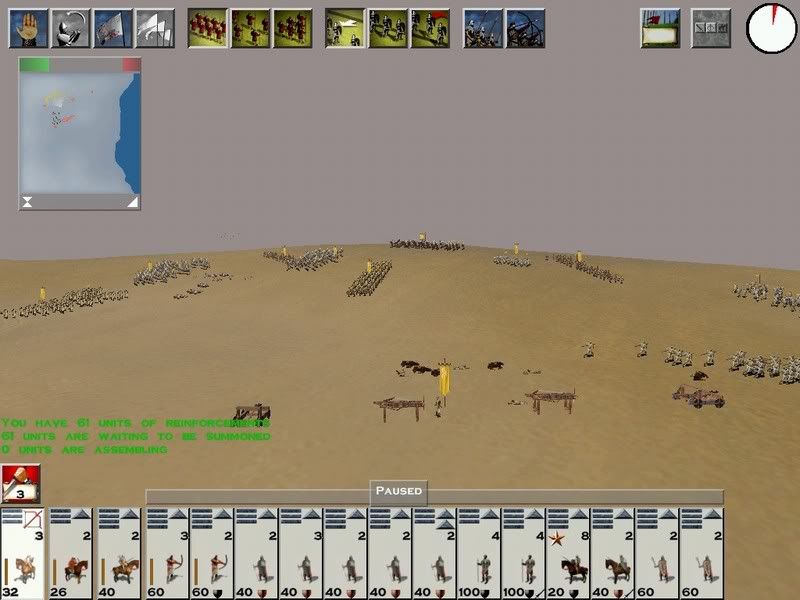

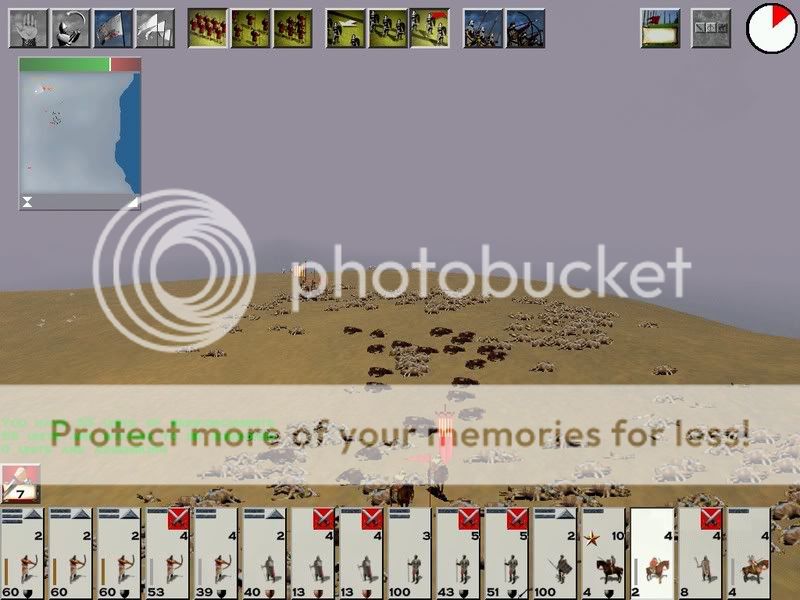
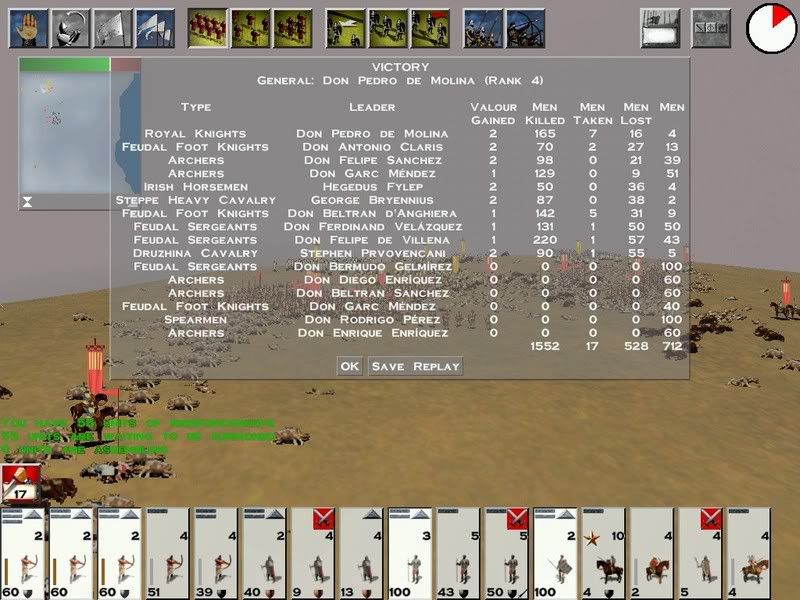
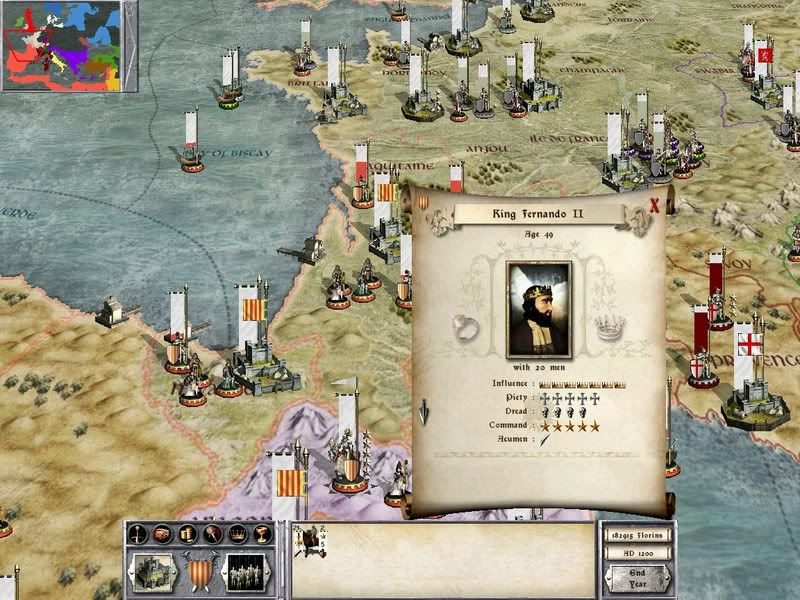





 ).
).








 Hail King Leszek! Long live King Konrad!
Hail King Leszek! Long live King Konrad! 





 #Hillary4prism
#Hillary4prism 



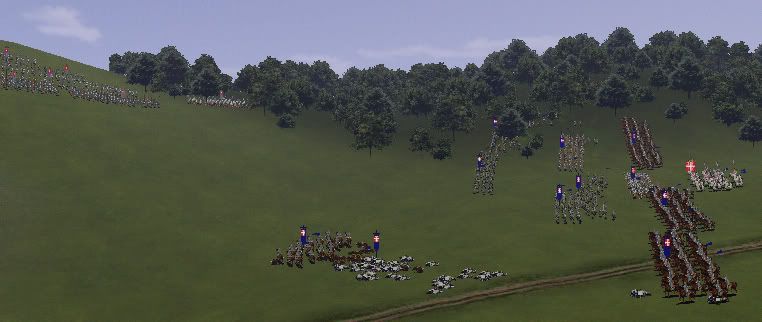
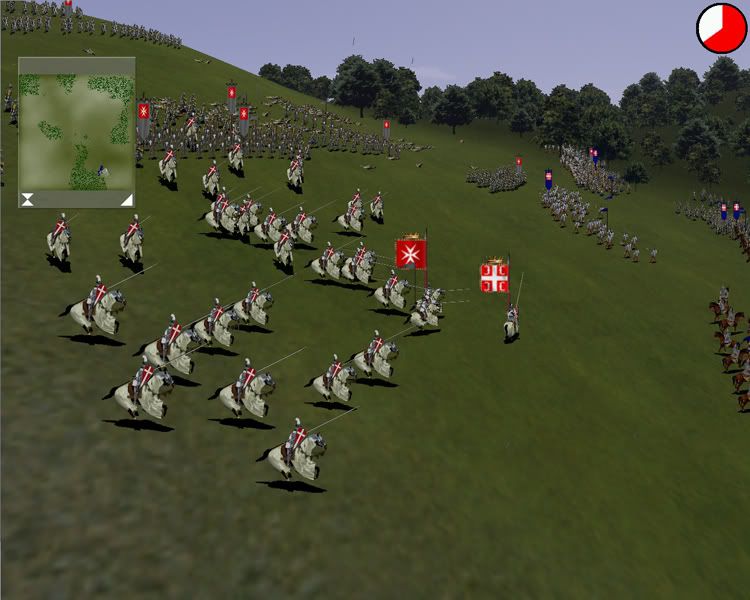
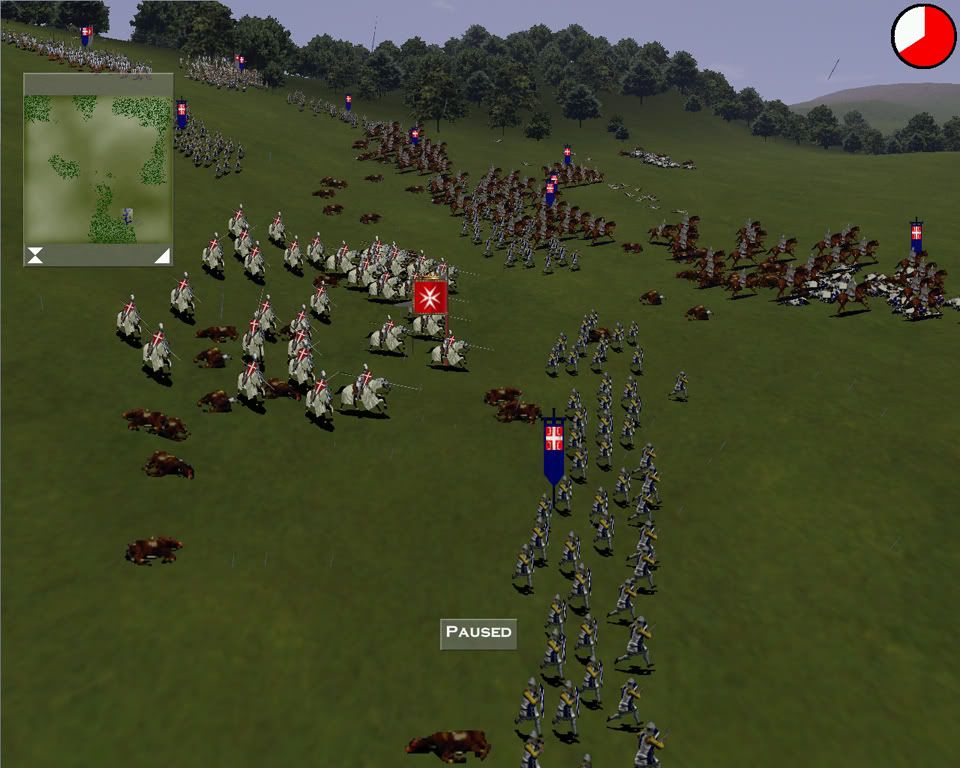
 ) Seriously, though, I would expand eastwards. I wouldn't tackle the Spanish until you're in a stronger position, and/or you were forced to.
) Seriously, though, I would expand eastwards. I wouldn't tackle the Spanish until you're in a stronger position, and/or you were forced to. 







Bookmarks